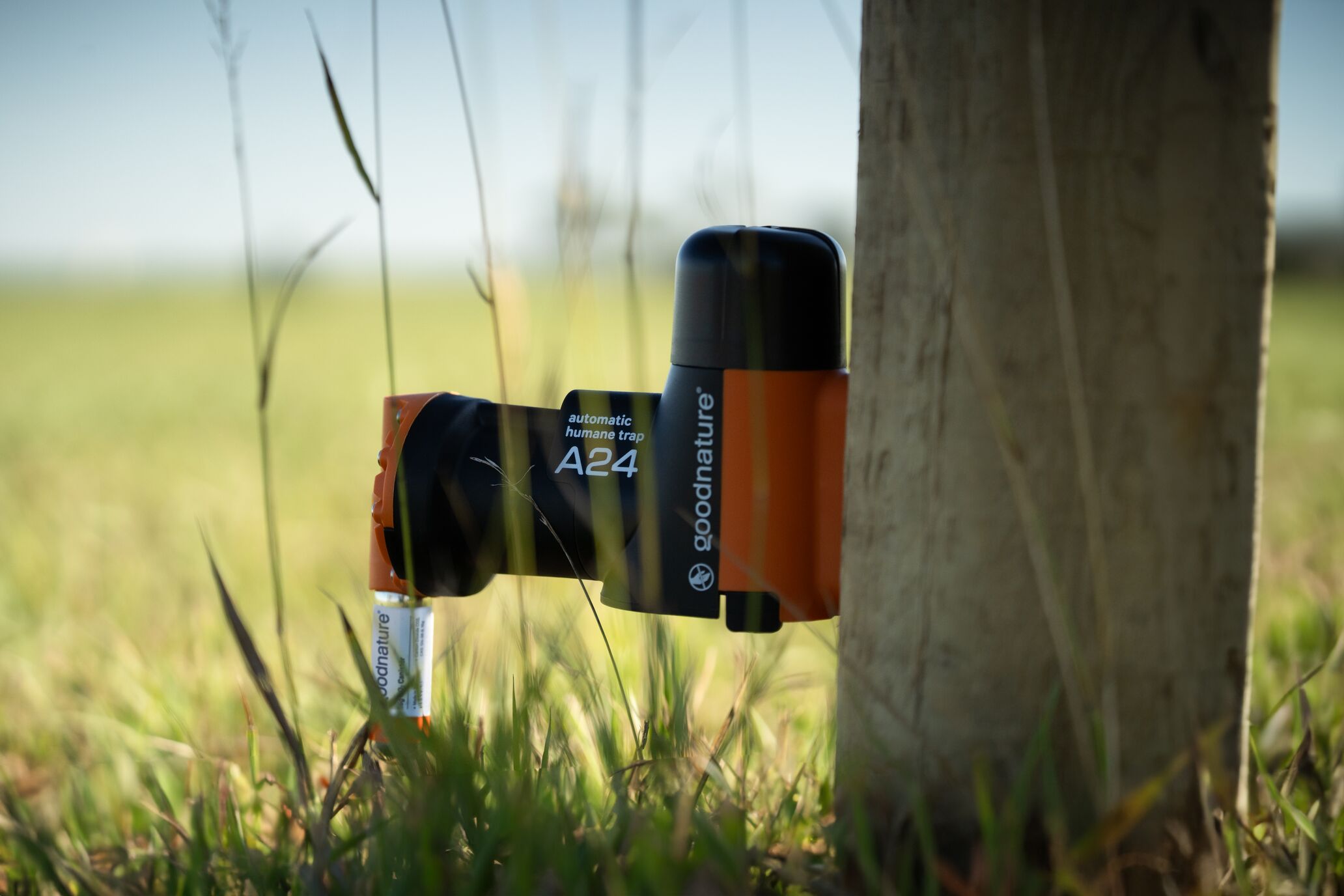NZ-made exporters eye up tariff upside
Thursday, 24 July, 2025

This article was written in partnership with ANZ and Goodnature
With new US trade tariffs affecting exporters worldwide, one local company believes there could be a silver lining for those that manufacture in New Zealand.
Innovative Wellington pest trap company Goodnature, which ships over a quarter of its smart rat and mouse traps to the US, believes higher tariffs on other countries could give its NZ-made products a competitive edge.
“Many of our competitors manufacture in China, Taiwan, or Vietnam (where tariffs are higher). Very few produce in the US and even those that do, they source a lot of their components from abroad," said Dave Shoemack, CEO of Goodnature.
“That means that if they end up with higher tariffs than us, there could be opportunities for us, as our price could become relatively more competitive.”
Last year, the company produced a record 100,700 traps and saw significant growth in US sales, especially via its website and through e-commerce.
Selling its traps through US-based distributors, Goodnature’s products now face a 10 percent import tariff, but the company is confident it can turn this into a growth opportunity.
“We sell our products to partners in the US, who then on-sell them, so the tariffs don't hit us directly, but it will impact our distribution partners. In saying that we’re also seeing new toxin regulations across many US states, making our toxin free and humane solution relatively more attractive” said Shoemack.
Goodnature’s recent growth in US sales is largely the result of bringing to market a new consumer-targeted smart mouse trap.
Research and development of the new trap was partly financed by ANZ New Zealand, which also supported Goodnature’s move into a new and larger Wellington factory and HQ.
One of Goodnature’s key partners is Waikato-based company Gallagher Animal Management, which handles a significant part of its global distribution.
In 2022, Gallagher also invested in Goodnature and now owns just under 25 percent of the company.
This gave the trap maker access to Gallagher’s distribution networks in over 100 countries, including New Zealand, Australia, the US, Canada, South America, and beyond.
“They have this huge distribution network set up around the world, a lot of connections and know-how. They know how to get things into the right places, the right shops, the right distributors, so it was a very logical collaboration from our side" said Shoemack.
Gallagher benefited from adding Goodnature's cutting-edge technology to its product lineup, including the A18 Grey Squirrel Trap, which has performed especially well in the US where there are few other options to trap the pest.
Before partnering with Gallagher, Goodnature's expansion was primarily and organic.
Teaming up with Gallagher allowed it to adopt a more strategic approach, gave its financial backers, including ANZ, even greater confidence in the business, and helped get more of its traps into the huge international consumer market.
"We knew we’d only scratched the surface,” said Shoemack.
“We had our new mouse trap in development and with Gallagher we could see that we’d be able to access more channels and markets, significantly boosting our reach.”
Shoemack saw that partnering with Gallagher was a logical fit for both businesses.
“We are both New Zealand-owned and based; we both have hardware and an increasing number of software products, and we’ve both largely kept our manufacturing here in New Zealand.”
The advantages of local production have become especially evident in a volatile global trade environment.
“Manufacturing in New Zealand was sort of crazy a few years ago, and all of a sudden now it's not so crazy, in terms of the advantages that brings."
This strategic fit was further strengthened by the personal rapport between the teams, with Lisbeth Jacobs, CEO of Gallagher's Animal Management division, also sitting on Goodnature’s board.
“Even before the US tariffs came along, I was very much a proponent of making stuff here in New Zealand,” said Jacobs.
“Having full control of your manufacturing process, being able to spin up new designs quickly and try them out, as well as assure the quality of what you make—this is really valuable.”
“Covid taught us the importance of having resilient supply chains, and now more than ever, in a world that's geopolitically a lot less predictable, flexibility and agility are critical.”
Exporters like Gallagher, with a flexible and agile approach to distribution, are more likely to succeed during times of uncertainty, according to Gareth Coleman ANZ’s Head of Trade & Supply Chain
“As one door closes, they are always looking for another that might be opening,” he said.
“Being nimble and having an open mind is really important and that really sets New Zealand’s exporters apart.”
For Goodnature, Gallagher’s involvement as an investor and partner has felt a lot like having sibling support.
“They’ve effectively acted like a big brother to us in the last few years,” said Shoemack.
“They're one of New Zealand's biggest companies, a real success story in terms of global exporting and owning a market, and they've done exactly what we want to do."
“We can't stay small, and we can't be small-minded. Gallagher are very globally minded and having them at our side definitely makes things easier and faster."
For Gallagher, working with Goodnature has caused the 86-year-old company to review its approach and consider whether it can streamline any processes.
“We might be bigger, but in our relationship with Goodnature, I see us very much as equals,” said Jacobs.
“They still have that agility, that quick decision-making, and their ‘can do’ attitude—in that way there’s a lot we can learn from each other.”